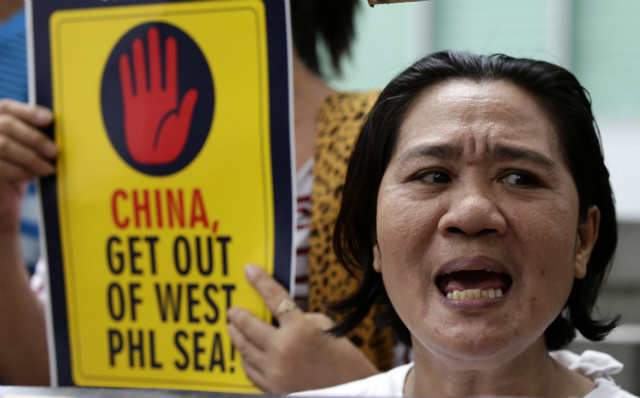SUMMARY
This is AI generated summarization, which may have errors. For context, always refer to the full article.

MANILA, Philippines – While he backs the historic case filed by the Philippines against China, veteran China analyst Chito Sta Romana said Manila will have to talk with Beijing in the end.
Speaking to Rappler, Sta Romana said the Philippines can combine negotiation with arbitration, the course it decided to take after more than 17 years of fruitless dialogue. (READ: PH slaps China with 8 facts vs ‘baseless’ claim)
He cited the example of Vietnam, which chose to tackle the issue on the Paracels, disputed islands in the South China Sea, bilaterally or one-on-one with China. It dealt with the issue on the Spratlys, disputed islands that form part of the Philippines’ claim, multilaterally or with third parties.
Unfortunately, Sta Romana added, the dispute between the Philippines and China has become a “dialogue of the deaf.”
The two countries, after all, take on different premises. For China, the basic dispute is territorial, or about land. For the Philippines, it is maritime, or about the sea. (READ: China’s strategy vs PH: Trial by publicity)
Below is the transcript of our interview with Sta Romana on April 2, after a forum titled “Understanding 21st Century China: All Under Heaven?” Video of the interview accompanies the transcript.
(Sta Romana and another China analyst, Marwyn Samuels, said Chinese Filipinos can also help in easing the tension between the Philippines and China. For a related story, read: Chinese Filipinos urged to step into PH-China row.)
Are you for or against arbitration?
I support arbitration because we had no choice. When China did not withdraw its ship – the reason we were forced to go to arbitration is because of what happened in Panatag (Scarborough) Shoal – we lost effective control when we withdrew and the Chinese did not. So the goal was how to recover it. And it got involved with a whole series of other issues, and so we wanted to settle the whole issue. I support arbitration. I think we should push it to the end, but we should have no illusion that this will be a quick solution or that it will be a final solution. A legal clarity will help to strengthen our case, but then you have to face the issue of a negotiated settlement with the Chinese, or convincing them to abide by a decision, if you win. If you lose, then you have to have bilateral talks.
I just find difficulty reconciling arbitration and talks, because sometimes they are portrayed as polar opposites.
I think bilateral and multilateral are usually portrayed as polar opposites. There is actually a way to combine it. The Vietnamese combined it – bilateral on the issue of the Paracels, multilateral on the issue of the Spratlys. On the Scarborough, it could actually have been bilateral, [because only the Philippines and China face this issue]. [On the] Spratlys, [the dispute includes] Vietnam, Brunei, Malaysia, and even Indonesia. So the point is, it became for us, how do we recover? How do we settle this issue of maritime entitlement? And it became an issue of the tribunal. [Because when it comes to negotiations with] China, it takes a long time. This is the problem with the Chinese – they take a very hard position. They say it’s indisputable. “You acknowledge [we own the] islands, and then we can divide the waters.” We have questions mismo on the islands eh, because we hold on to some of the islands. So there is no quick fix. That’s the problem….And even if you already chose multilateral, it doesn’t mean you cannot still have diplomatic consultations or some form of bilateral contacts.
Kasi kahit naman magkaro’n din, puwedeng hindi sundin. (Because even if a ruling comes out, they can still choose not to follow it.)
Yeah, exactly. When you file a case, you run the risk of winning or losing. If you lose, then you will try to find another solution, which could include negotiation. If you win, the problem is how to make the other side abide. And a part of the process of persuading the other side to abide is, trying to have the international community with you, or some form of bilateral negotiations. So it’s a long process.
Bilateral – we will need it in any case?
To settle, because if you settle the maritime issue, you still have to settle the territorial issue. [What China questions] is that, can you settle maritime without settling the territorial? Baliktad ‘yung position natin. (Our position is the other way around.) What we’re doing is, [we put] maritime [first]. And this is a legal question that the arbitration hopefully will clarify. Kaya parang dialogue of the deaf kasi magkaiba ‘yung premises. (So it is like a dialogue of the deaf because premises are different.)
The similarity, both are claiming the Spratlys or some parts of the Spratlys, [but] how to go about it, the whole issue of the mode of settlement, resolution, [it’s different]. We want multilateral [only]. [They want] bilateral [only]. ‘Yun ang problema. (That’s the problem.) That’s why it will take a while to resolve this issue, even to come to an agreement on the mode. It’s tough, it’s a tough one. Ang problema, malakas ang coast guard ng China. (The problem is, China has a strong coast guard.) And the claims that they had before, they cannot assert. Dati, kayang kaya nating manghuli ng mangingisda nila. (Before, we can easily arrest their fishermen.) Now, we can’t do it. So it’s a puzzle. It’s a challenge for us. [For China], it’s a challenge for them, too. It’s tough. – Rappler.com
Add a comment
How does this make you feel?
There are no comments yet. Add your comment to start the conversation.